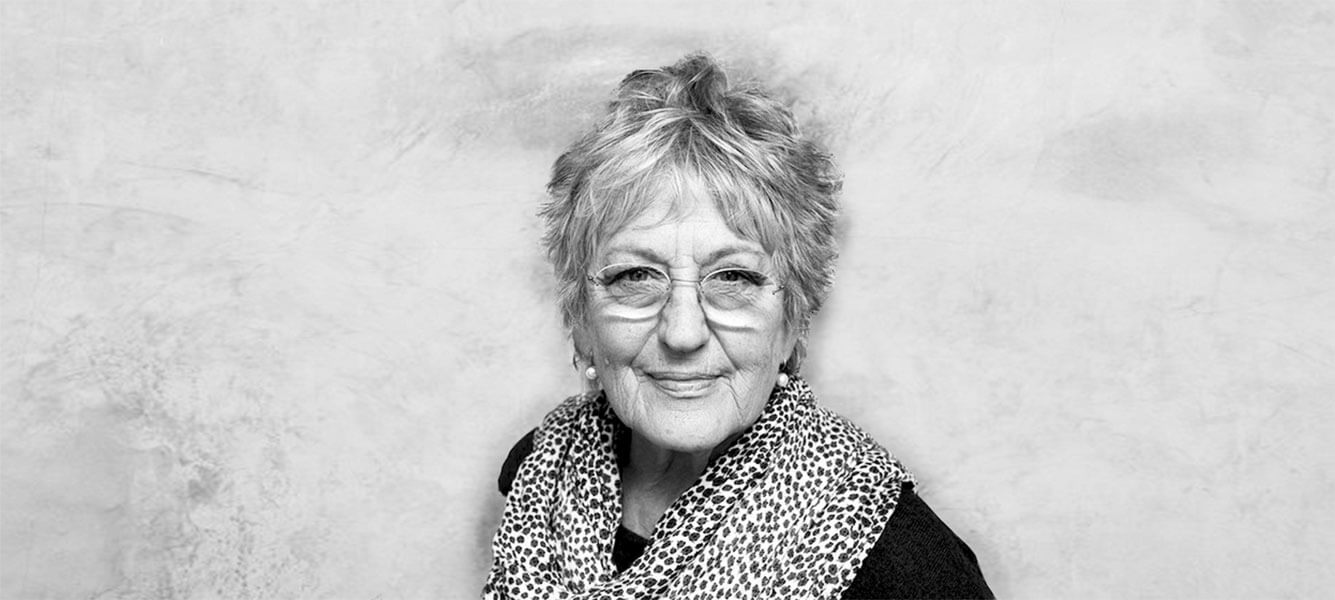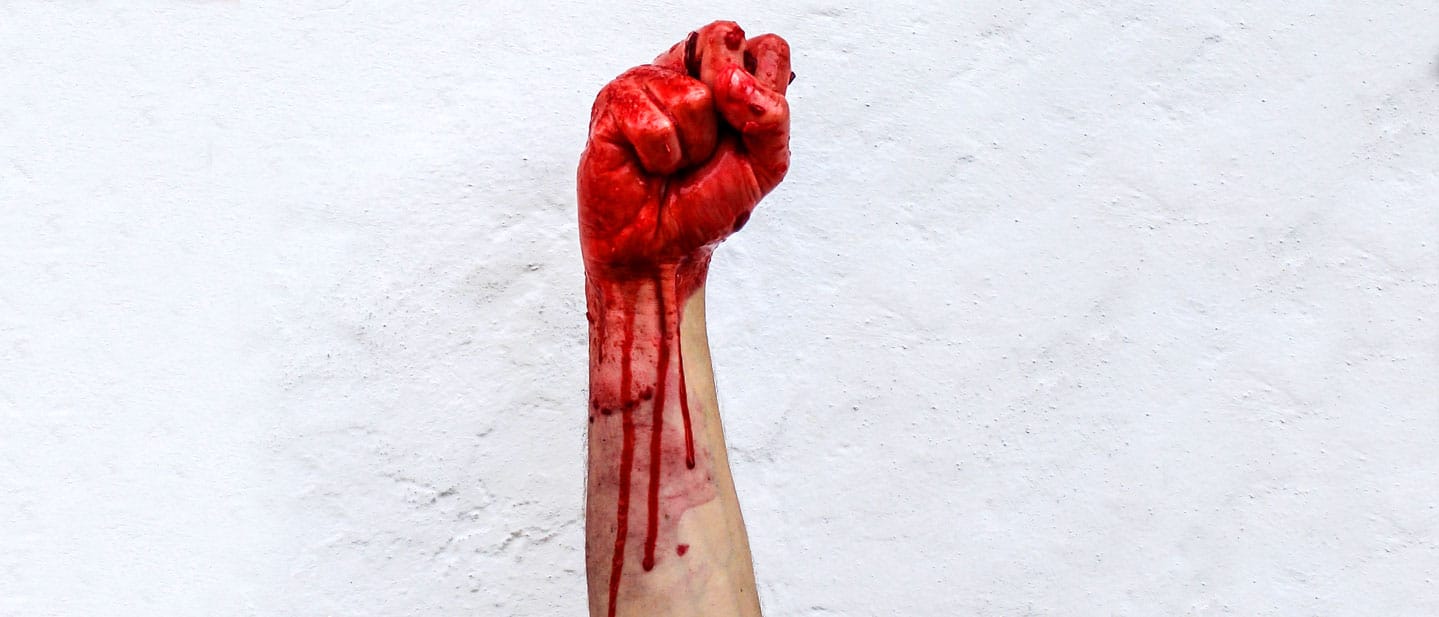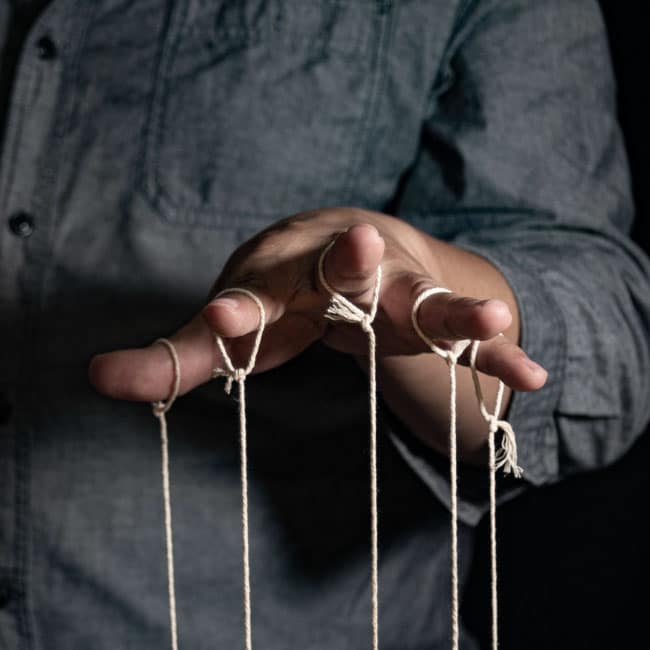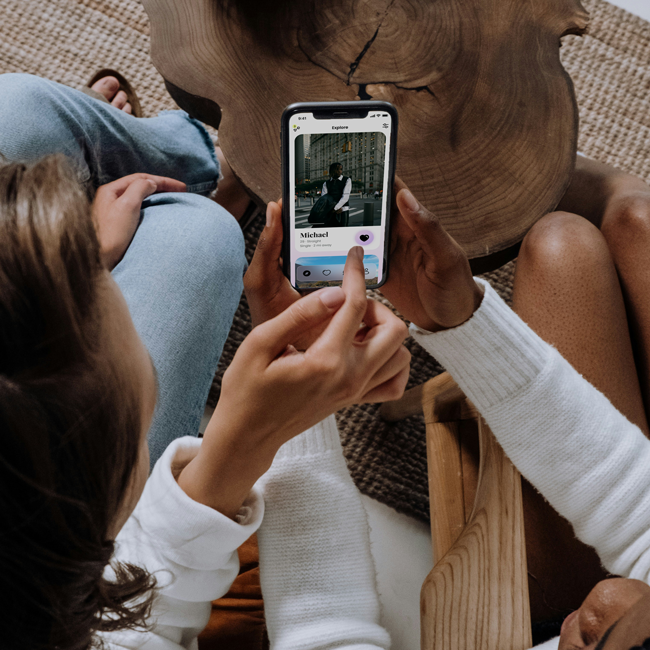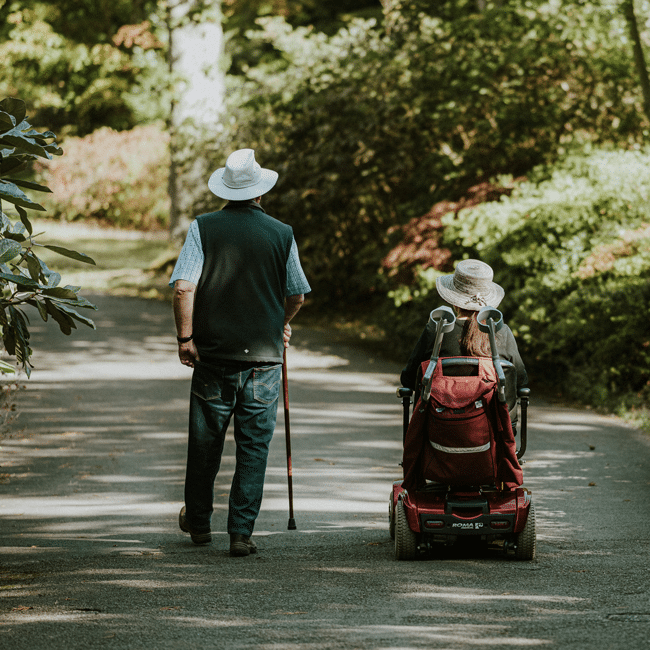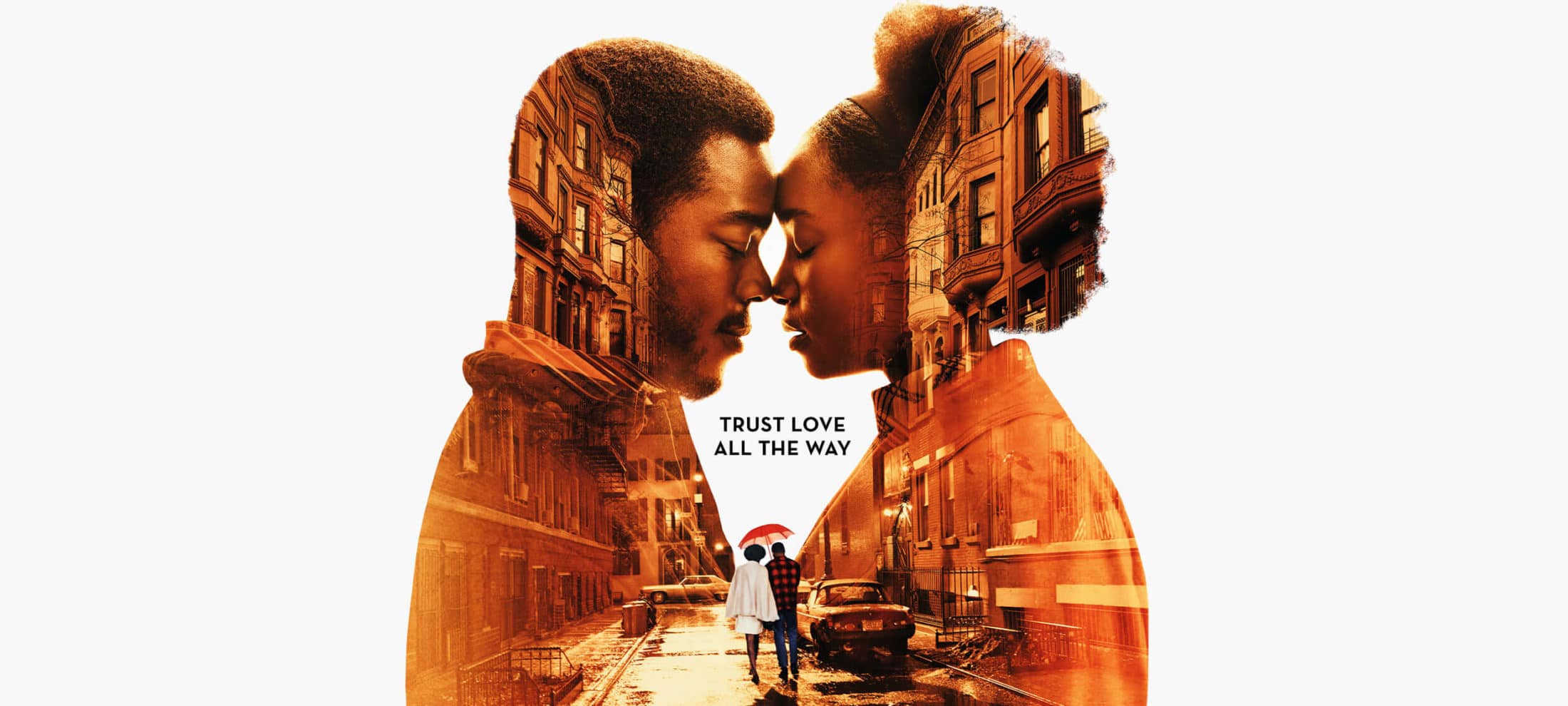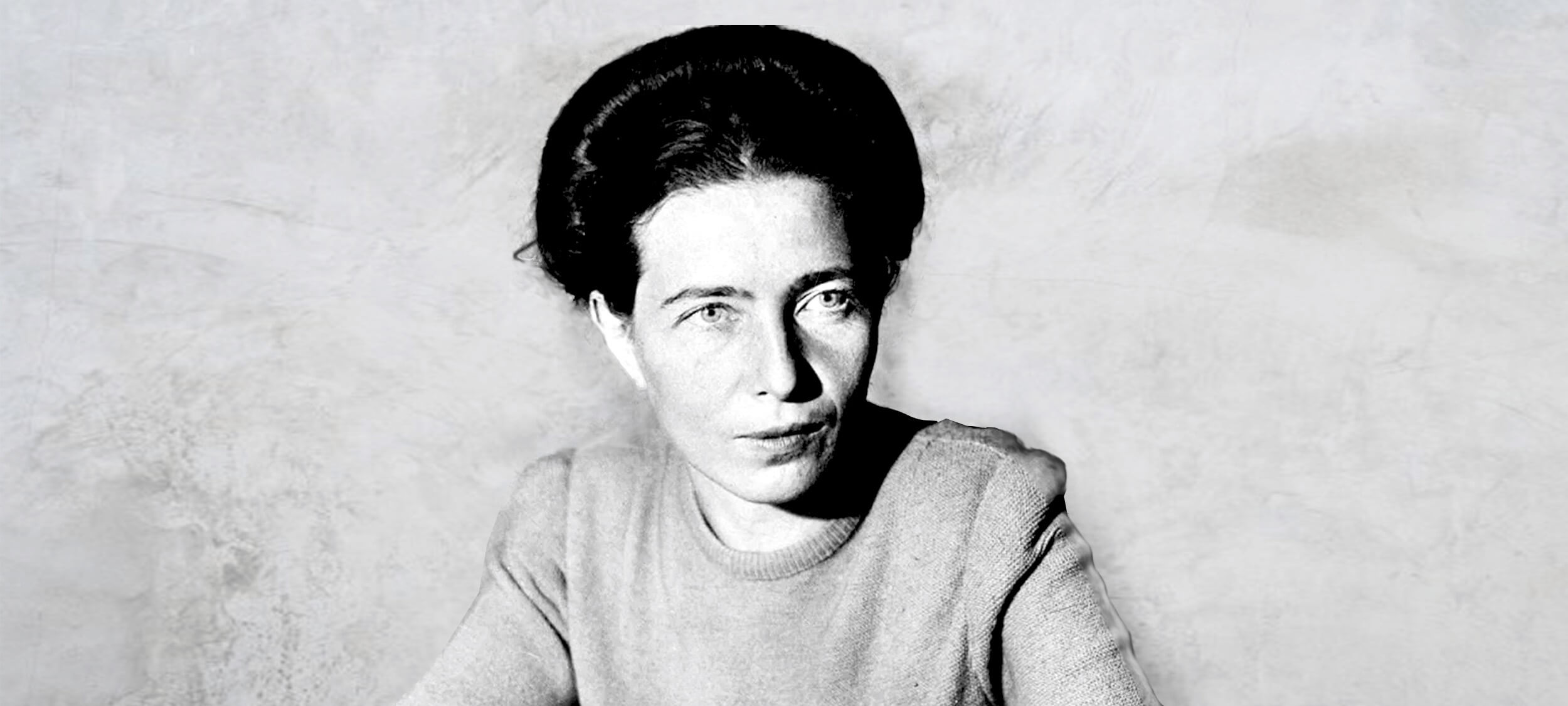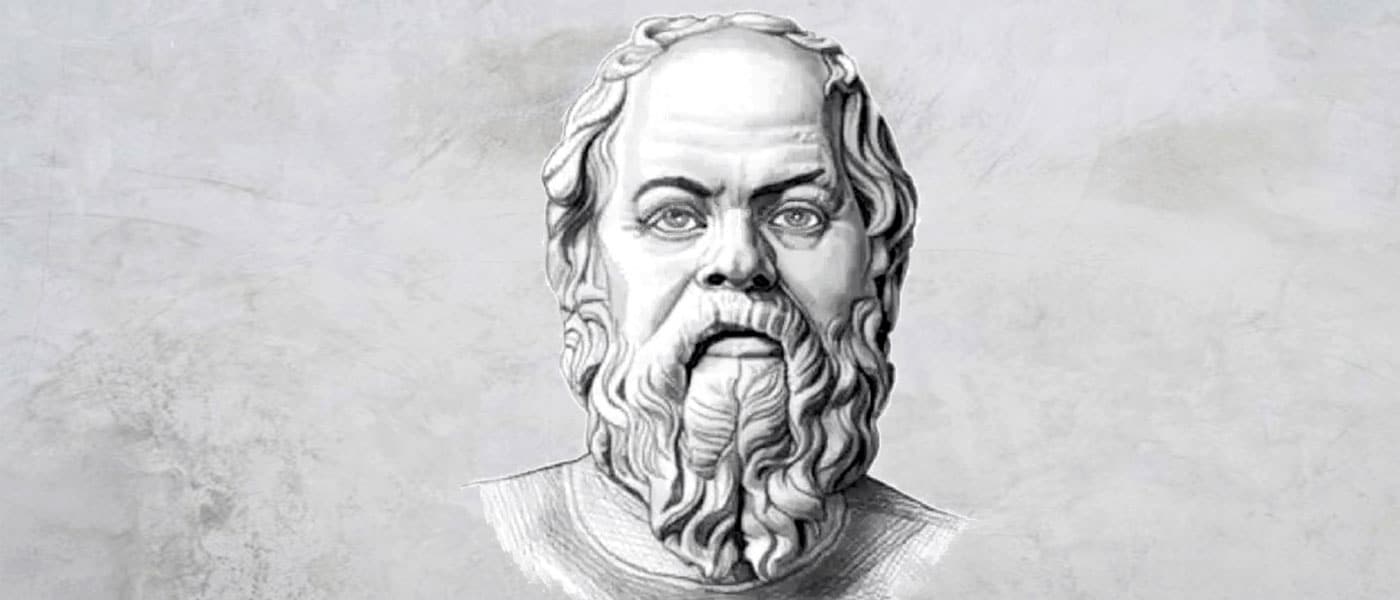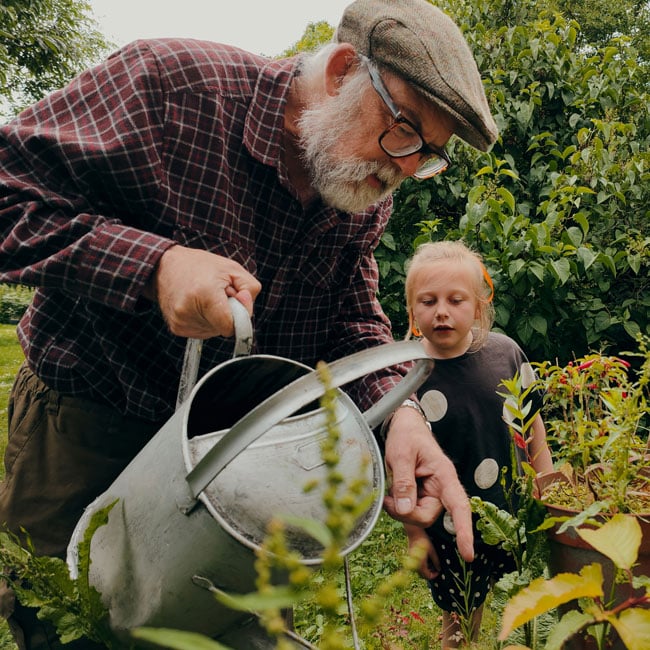Ask an ethicist: Should I tell my student's parents what they've been confiding in me?
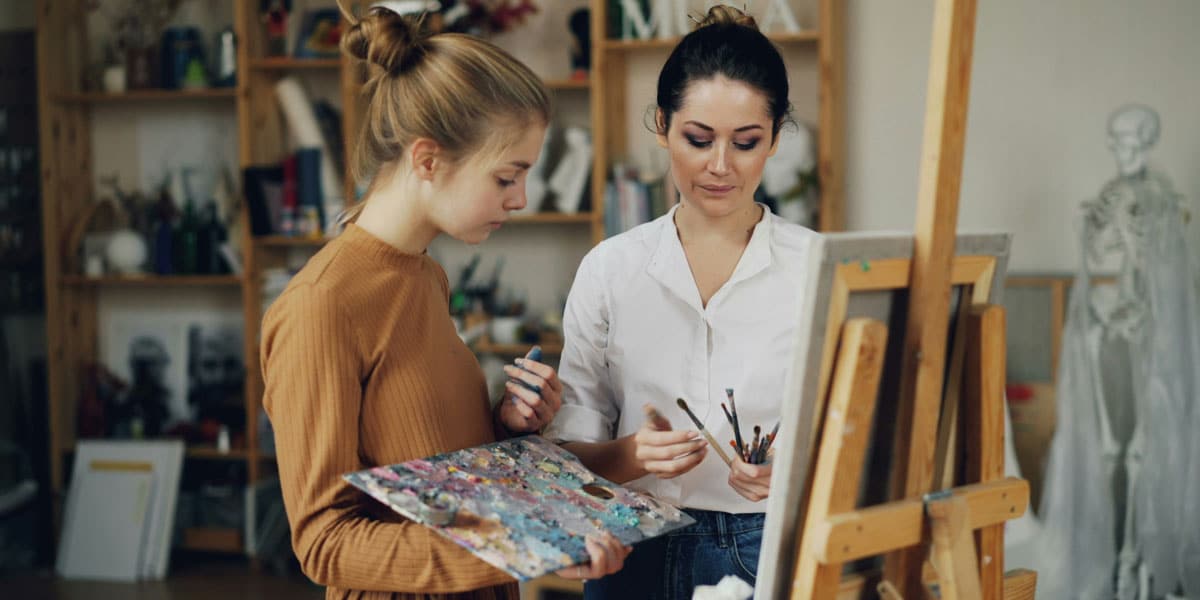
Ask an ethicist: Should I tell my student’s parents what they’ve been confiding in me?
Opinion + AnalysisRelationships
BY John Neil 28 JAN 2026
A high school student has recently confided some personal information. Should I share this confidential information with their parents, even if doing so may breach their trust?
Teachers may be a lot of things, but they’re not therapists, bound by strict confidentiality codes. Nor do they have a parent’s automatic access to everything happening in a child’s life. They occupy a unique middle ground – trusted enough that students tell them things, but facing different calls to make depending on what they hear. A falling-out with friends requires a different response than cyberbullying in a group chat, which differs again from signs of disordered eating or disclosures of abuse. Schools have distinct procedures for each situation, and teachers must balance their duty of care against overreaching into personal advice or counselling – territory that belongs to trained professionals with their own, clearer confidentiality frameworks.
When a student chooses to confide in a teacher, it usually means something. They’ve decided that teacher offers safety. That trust opens up space for them to work through what’s going on, or to practise reaching out for help on their own terms. It’s actually an important part of how young people learn to handle difficult things – sussing out who to talk to and knowing what to share and when. When we decide to share information, the consequence of breaking confidence isn’t a small thing. No doubt you’ve experienced it yourself – we feel betrayed and we shut down. When it comes to students there is a double jeopardy. The message they take away is that confiding in grown-ups isn’t actually safe, that it just gets you in trouble or reported. That’s a lesson that can stick with them for years.
It’s important that a young person’s ownership of their own story is respected. They should be in a position to choose what to tell and what to hold back. But there are obvious limits. If a student discloses that they haven’t eaten in three days, or that they’re scared to go home, those aren’t conversations that can be sat on. ‘Should I respect their privacy?’ is subordinated to ‘what does this child need right now?’ Mandatory reporting laws exist for exactly this reason – confidentiality can’t outweigh safety when the confidential information involves harm to themselves or to others, or if there is serious risk or abuse.
But grey areas remain – especially around confidential information – and context matters enormously. Teachers operate within a formal Duty of Care framework that establishes clear professional and legal obligations, yet this regulatory requirement doesn’t always map neatly onto a teacher’s personal sense of moral duty – what ‘doing right by a student’ feels like in the moment. What that looks like depends enormously on the student. A thirteen-year-old whose parents are still heavily involved in day-to-day decisions is in a different position than a seventeen-year-old who’s six months from being a legal adult. Parents have both a legal and moral stake in their child’s wellbeing, but that argument carries different weight depending on where the child is developmentally and the type of information being shared.
Questions to help clarify the decision
A teacher colleague once described the profession of teaching as ‘ethically rich.’ When facing ethically rich situations, asking some questions may help clarify what’s at stake:
- Is this about something that’s already happened, or something that might happen? The distinction matters. A student venting about a past argument with their mum is different from a student hinting they’re planning to run away.
- Was there a promise or an implication that this would stay confidential? If this is the case, breaking that promise comes with real costs but never at the cost of the student’s or anyone else’s safety.
- If we’re being honest, is the hesitation because of genuine uncertainty, or about dreading an awkward conversation?
- Can the student be involved in what happens next? Could they tell their parents themselves, with the teacher’s support or could they give permission before anyone is contacted?
Principles for navigating the decision
No single rule can cover every situation a teacher might face outside of the legal requirements of mandatory reporting. Here are some ‘rules of thumb’ – ethically informed guidelines that can sometimes help shape how you approach a situation like this without prescribing a rigid answer. They can offer a framework rather than a formula.
Start with the least intrusive option: Many professional codes and guidelines emphasise involving students in disclosure decisions where possible. That doesn’t mean never telling anyone. It means not going over a student’s head unless you have to.
Consult with others before you act: If in any doubt, talking to the school counsellor, year coordinator, or head of year yourself may help you think through options – you don’t have to figure it out alone. Sharing information with colleagues will also help triangulate potential areas of emerging risk.
Know where the legal red lines are: Teachers are mandatory reporters – they have a legal duty to report suspected abuse or neglect. But mandatory reporting is about safety, not general parental notification. Outside those clear-cut situations, there may be more discretion than can sometimes be assumed.
Let them keep some control over the process if you can: Even if disclosure is necessary, a student doesn’t have to feel blindsided. ‘I think your parents need to know about this – would you like to tell them yourself, or would you prefer I do it?’ are very different options than calling a parent out of the blue.
Respect where students are developmentally: Adolescents need to practise regulating what they share with parents as part of healthy development. Routinely overriding a teenager’s choices about disclosure can actually undermine that process. But that doesn’t mean it’s a blank check. Teenagers do need practice deciding what to share and with whom – that’s part of how they learn to navigate adult relationships.
Write things down: Keep a brief, factual record of what was disclosed, what you considered, and what you decided. If questions come up later – from parents, principals, or anyone else – you’ll have a record of what guided your reasoning, and it is typically a legal requirement of your jurisdiction’s Code of Conduct.

BY John Neil
As Director of Education and Innovation at The Ethics Centre, John collaborates closely with a talented team of specialists and subject matter experts to shape the tools, frameworks, and programs that drive our work forward. He brings a rich and varied background as a consultant, lecturer, and researcher, with expertise spanning ethics, cultural studies, sustainability, and innovation. This multidisciplinary perspective allows him to introduce fresh, thought-provoking approaches that energise and inspire our initiatives. John has partnered with some of Australia’s largest organisations across diverse industries, to place ethics at the heart of organisational life. His work focuses on education, cultural alignment, and leadership development to foster meaningful and lasting impact.
Ethics in your inbox.
Get the latest inspiration, intelligence, events & more.
By signing up you agree to our privacy policy
You might be interested in…
Opinion + Analysis
Health + Wellbeing, Relationships
How to deal with people who aren’t doing their bit to flatten the curve
Opinion + Analysis
Health + Wellbeing, Relationships
Rationing life: COVID-19 triage and end of life care
Opinion + Analysis
Relationships, Society + Culture
The Bear and what it means to keep going when you lose it all
WATCH
Relationships
Deontology
Ethics Explainer: Ethical non-monogamy

Ethics Explainer: Ethical non-monogamy
ExplainerRelationshipsSociety + Culture
BY The Ethics Centre 14 JAN 2026
Ethical non-monogamy (ENM), also known as consensual non-monogamy, describes practices that involve multiple concurrent romantic and/or sexual relationships.
What it’s not
First up, it’s important to distinguish the two types of non-monogamy that are often conflated with ENM:
Polygamy, the most prominent kind of culturally institutionalised non-monogamy, is the practice of having multiple marriages. It is a historically significant practice, with hundreds of societies around the world having practiced it at some point, while many still do.
Infidelity, or non-consensual non-monogamy, is something we colloquially refer to as cheating. That is, when one or both partners in a monogamous relationship engage in various forms of intimacy outside of the relationship without the knowledge or consent of the other.
All-party consent
So, what makes ethical non-monogamy, then?
One of the defining features of ethical non-monogamy is its focus on consent.
Polygamy, while it can be consensual in theory, more often occurs alongside arranged marriages, child marriages, dowries and other practices that revoke the autonomy of women and girls. Infidelity is of course inherently non-consensual, but the reasons and ways that it happens inversely influence ENM practices.
Consent needs to be informed, voluntary and active. This means that all people involved in ENM relationships need to understand the dynamics they’re involved in, are not being emotionally or physically coerced into agreement, and are explicitly assenting to the arrangement.
Open communication
There are a multitude of ways that ENM relationships can operate, but each of them relies on a foundation of honesty and effective communication (the basis of informed consent). This often means communicating openly about things that are seen as taboo or unusual in monogamous relationships – attraction to others, romantic or sexual plans with others, feelings of jealousy, vulnerability, or inadequacy.
While all ENM relationships require this commitment to open communication and consent, there can be variation in how that looks based on the kind of relationship dynamic. They’re often broken up into broad categories of polyamory, open relationships, and relationship anarchy.
Polyamory refers to having multiple romantic relationships concurrently. Maintaining ethical polyamorous relationships involves ongoing communication with all partners to ensure that everyone understands the boundaries and expectations of each relationship. Polyamory can look like a throuple, or five people all in a relationship with each other, or one person in a relationship with three separate people, or any other number of configurations that work for the people involved.
Open relationships are focused more on the sexual aspects, where usually one primary couple will maintain the sole romantic relationship but agree to having sexual experiences outside of the relationship. While many still rely on continued communication, there is a subset of open relationships that operate on a “don’t ask, don’t tell” policy. This usually involves consenting to seeking sexual partners outside of the relationship but agreeing to keep the details private. Swinging is also a popular form of open relationship, where monoamorous (romantically exclusive) couples have sexual relations with other couples.
Relationship anarchy rejects most conventional labels and structures, including some of the ones that polyamorous relationships sometimes rely on, like hierarchy. Instead, these relationships are based on personal agreements between each individual partner.
What all of these have in common is a firm commitment to communicating needs, expectations, boundaries and emotions in a respectful way.
These are also the hallmarks of a good monogamous relationship, but the need for them in ethical non-monogamy is compounded by the extra variables that come with multiple relationship dynamics simultaneously.
There are many other aspects of ethical relationship development that are emphasised in ethical non-monogamy but equally important and applicable to monogamous ones. These includes things like understanding and managing emotions, especially jealousy, and practicing safe sex.
Outside the relationships
Unconventional relationships are unrecognised in the law in most countries. This poses ethical challenges to current laws, including things like marriage, inheritance, hospital visitation, and adoption.
If consenting adults are in a relationship that looks different to the monogamous ones most laws are set around, is it ethical to exclude them from the benefits that they would otherwise have? Given the difficultly that monogamous queer relationships have faced and continue to face under the law in many countries, non-monogamy seems to be a long way from legal recognition. But it’s worth asking, why?

BY The Ethics Centre
The Ethics Centre is a not-for-profit organisation developing innovative programs, services and experiences, designed to bring ethics to the centre of professional and personal life.
Ethics in your inbox.
Get the latest inspiration, intelligence, events & more.
By signing up you agree to our privacy policy
You might be interested in…
Opinion + Analysis
Relationships
Why hard conversations matter
Opinion + Analysis
Relationships
Praying for Paris doesn’t make you racist
Opinion + Analysis
Relationships, Science + Technology
The complex ethics of online memes
Big thinker
Politics + Human Rights, Relationships
Big Thinker: Germaine Greer
Standing up against discrimination
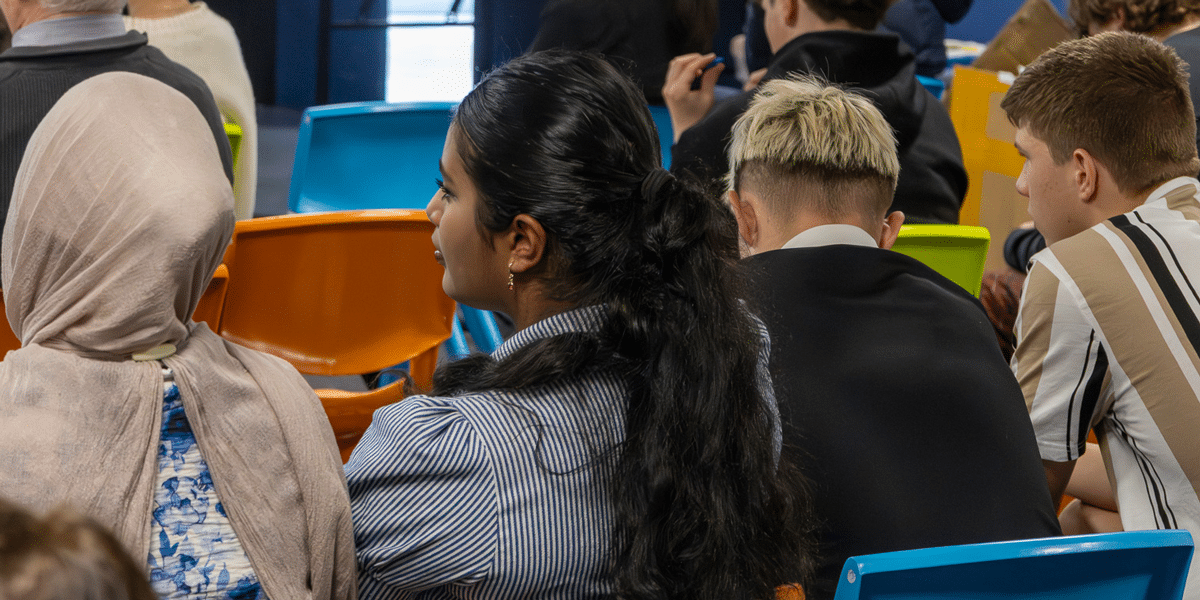
Standing up against discrimination
Opinion + AnalysisPolitics + Human RightsRelationships
BY Mariam Sawan 11 NOV 2025
A fantastic opportunity arrived when Courage to Care NSW and The Ethics Centre launched a pivotal program for young people across our state, proudly funded by Multicultural NSW’s Compact Grant program. The focus? One of the most pressing struggles Australians continue to face or witness: discrimination.
Over three days, Year 9 and 10 students from across the Illawarra gathered at the Wollongong Youth Centre to take part in the Common Ground program. Together, we learnt not only to recognise discrimination in its many forms but also to challenge and overcome it, helping to build a community where everyone feels safe and accepted, regardless of culture, background, or ability.
Before participating in the program, I understood discrimination only as something “bad” – a simple wrong we were all taught to avoid, without ever questioning why it happens or what sustains it.
Growing up with a multicultural background, I have faced many stereotypical insults, but I never really saw them as a big deal. I knew discrimination existed, but I only saw it at face value – people saying hurtful things to make themselves feel better. Through a series of activities, case studies and creative programs, Common Ground showed me just how complex it is. While I knew discrimination could involve gender, religion, disability, and age, I had assumed it only appeared in big, obvious ways like bullying. I had not considered the smaller, everyday forms such as jokes, exclusion, or subtle assumptions. I learnt how hidden these forms of discrimination can be, shifting my mindset completely. Now I am more empathetic and aware, thinking about the meaning behind a joke rather than dismissing it and have the confidence and practical skills needed to fight what can only be described as a virus of hatred.
What stood out most was how effortlessly the organisers drew us into a topic we’d all heard about countless times before. But this time, it felt different. We were guided by “value cards” that highlighted the program’s principles, especially the three C’s: curiosity, carefulness, and courage. These sparked deep discussions about what those values meant to each of us, encouraging us to explore the issue of discrimination on a personal level.
I had previously thought curiosity was only about seeking knowledge, but the program taught me it is about listening and understanding people’s experiences without judgment. Carefulness is not just about thinking before speaking; it is also about considering how my actions affect others. Courage is having the confidence to try something new and to challenge discrimination respectfully. Hearing how other students approached these values showed me there is more than one way to make a difference and that small actions can matter just as much as big ones. My perspective changed completely.
The activities Common Ground provided were equally eye-opening. An online game showed how misinformation spreads like wildfire on social media, shaping perceptions and fuelling prejudice. Another exercise asked us to “buy privileges” for a child, using only a limited budget. The unfairness of unequal resources became painfully clear as some children could afford opportunities while others missed out. In our final group project, we created videos exploring real experiences of discrimination and brainstorming ways to combat it.
The third and final day brought together students from across the Wollongong LGA for a mix of learning, competition, and celebration. Two teams tied for the People’s Choice Award, with powerful presentations on racial and religious discrimination. The overall winners, however, tackled racial discrimination in a striking way. Their victory came with $1,000 in prize money, which they generously donated to Illawarra Multicultural Services, an organisation that supports migrants and refugees with housing, jobs, and community support.
By the end of the program, the message was clear. We, as young people, had not only learned how to recognise discrimination – even in its subtlest forms – but also how to respond with confidence, safety, and integrity.
The Common Ground program didn’t just teach us about injustice; it empowered us to become catalysts for change, fostering communities built on diversity, inclusiveness, and support.
Common Ground is a workshop program for Year 9-10 students that empowers them to stand up against discrimination. We’re taking expressions of interest for schools in South West Sydney to join this free program in Term 2, 2026. Register your school’s interest today by contacting us at learn@ethics.org.au.

BY Mariam Sawan
Mariam Sawan is a high school student who enjoys learning about how people can make a positive impact in their community and understanding people’s points of view. After participating in the Common Ground program on discrimination, she was inspired to write the article “Standing Up Against Discrimination”. Through her writing, she hopes to encourage others to treat everyone with fairness and respect and to feel empowered to speak up against injustice.
Ethics in your inbox.
Get the latest inspiration, intelligence, events & more.
By signing up you agree to our privacy policy
You might be interested in…
Explainer
Politics + Human Rights
Ethics Explainer: Anarchy
Opinion + Analysis
Politics + Human Rights, Relationships
What’s the use in trying?
Opinion + Analysis
Politics + Human Rights
Big Thinker: John Rawls
Opinion + Analysis
Politics + Human Rights
If you don’t like politicians appealing to voters’ more base emotions, there is something you can do about it
Ask an ethicist: How much should politics influence my dating decisions?

Ask an ethicist: How much should politics influence my dating decisions?
Opinion + AnalysisRelationships
BY Daniel Finlay 3 NOV 2025
I’ve noticed on dating apps now that many people are displaying their political views on their profile. Is this something I should take into account when talking to someone? How picky should I be about politics when it comes to dating?
Dating is hard even under the best circumstances. Finding the balance between bearing your soul and maintaining a semblance of mysterious allure already feels like a circus feat – before we add in the complexity of having several of these conversations at once on our phones with people we’ve never met before.
If you do manage to wade through that surface mire of app dating, you’ll still be left with some of the harder decisions. A common focus is how we present ourselves. And that’s important – we understandably want to feel like we’re showing an accurate snippet of our identity.
But something to consider is the way that we often consciously or unconsciously judge, categorise, make assumptions about or dismiss people based on small aspects of their presentations of themselves.
Political ideologies, as indicated on dating profiles, usually reflect at least some of our deeply held beliefs. It’s tempting, then, at least for those of us who feel strongly, to use these little markers as a litmus test for our attention. In the age of online dating, we don’t want to waste our time vaguely flirting with someone who actually hates everything we stand for.
But…
Some open-mindedness, perspective-taking and empathy go a long way to breaking down the social barriers that encourage us into echo chambers.
I noticed this firsthand recently when talking to my friends about dating. I told them I had changed my profile to more explicitly reflect some of my political values. We mostly agreed that while it might drive some people away, it was likely to be people I’d be uninterested in regardless.
Then I told them that I often find myself having an adverse reaction to profiles that indicate someone is “Apolitical” or “Not Political” because I see this as apathetic and conflicting with my own strongly held beliefs. Instead of agreeing, they responded to this with variations of “But I’m not political!”.
This didn’t garner the response that I expected because I didn’t realise the way that my close friends thought about and categorised themselves. It turns out they too identified with those labels, not because they don’t have any political opinions, but because they don’t regard them as political. I hadn’t ever asked for their self-reflection before, and so I assumed that I knew how they thought about themselves.
Reframing
For lots of people, “politics” feels far away and unreachable: in rooms with suits, on tv or across the world, seats and benches in inaccessible buildings, smiles and virtue signals with little positive tangible effect.
But this doesn’t mean that someone who actively engages in the broader aspects of politics doesn’t have anything in common with the self-described “apolitical”. Neither does it mean that people on opposing sides of the spectrum have nothing in common.
Recognising this takes reflection on our own ability to remain open-minded, intellectually charitable, and curious.
We have to ask ourselves: is it short-sighted to dismiss people based off a single word? Are we indulging in an echo chamber by looking for people who present exactly like us?
The answer to these questions is both simpler and more complicated than might appear: It’s short-sighted and completely understandable.
As in my situation, you’re incredibly likely to be surrounded by some people who are indifferent to what they consider politics. This doesn’t necessarily make them bad people. What is foundationally important to these relationships are their underlying values and principles. Someone might not be able to identify with a particular movement or phrase or title, but do they care about the same things you do? Do they value the same things you do, for the same reasons?
Granted, dating apps don’t lend themselves to the conversation needed to get to these underlying questions. Organic friendships or even romantic relationships allow more time and space for getting to know what someone values and the principles they stick to in a wider context. Conversely, modern dating often encourages a sense of speed and abundance at odds with this sense of intellectual charity – which brings us to the more complicated answer.
Be discerning, not cynical
As much as we love our friends, we’ll inevitably hold a slightly higher bar for intimate relationships. Those extra levels of intimacy – the extra reliance, co-habitation, psychological, physical and financial vulnerability, etc – all apply a pressure that means a solid foundation of mutual values and principles is even more important for the relationship to be long-lasting (or even to get on the first date).
Political labels are one of many ways we can signal and filter all of these possibilities, and while they’re useful, taking a page out of Aristotle’s book can help prevent us from falling into an echo chamber.
Aristotle spoke of virtues, and specifically about finding the golden mean between two extremes. In the case of dating, we’re trying to avoid the extremes of cynicism and naïvety. Being cynical means a lack of open-mindedness and intellectual charity – it’s assuming the worst of someone based on little evidence, and this can happen a lot when we rely on small markers on profiles to tell us the whole story of a person. We see an identifier that’s usually at odds with our own, and we dismiss them.
Naivety, conversely, is an overabundance of optimism and lack of critical thinking, often resulting in a complete misunderstanding of someone’s character and motivations and leading to disappointment or apparent betrayal.
Being discerning, a comfortable middle ground, is the virtuous person’s dating goal. We want to be able to make quick and accurate judgements based on limited information. In doing so, the aim is to filter out likely harm while remaining open to meeting people a bit different from ourselves.

BY Daniel Finlay
Daniel is a philosopher, writer and editor. He works at The Ethics Centre as Youth Engagement Coordinator, supporting and developing the futures of young Australians through exposure to ethics.
Ethics in your inbox.
Get the latest inspiration, intelligence, events & more.
By signing up you agree to our privacy policy
You might be interested in…
Opinion + Analysis
Politics + Human Rights, Relationships, Society + Culture
The sticky ethics of protests in a pandemic
Opinion + Analysis
Health + Wellbeing, Relationships
Women must uphold the right to defy their doctor’s orders
Opinion + Analysis
Relationships
Why hard conversations matter
Opinion + Analysis
Health + Wellbeing, Politics + Human Rights, Relationships
Ethics in a time of coronavirus
The ‘good ones’ aren’t always kind

The ‘good ones’ aren’t always kind
Opinion + AnalysisRelationshipsSociety + Culture
BY Isha Desai 27 OCT 2025
I’m sitting on a low brick wall at a party next to my date. Twenty-something boys and girls mill around, drink in hand, most of them in couples. One man clocks the boy sitting next to me, approaching us with a wide grin: “he’s a good one”.
The man is talking to me. Minutes later a girl rushes over, taking my hand in hers with a squeeze: “he’s one of the nice ones”. It would take another four months of dating before I realise that being a ‘good guy’ is very different from being a kind one.
The terms ‘good guy’ or ‘nice guy’ have been in my consciousness for two decades: a blanket seal of approval given to people (typically men) who display surface-level qualities of respect, decency and likeability.
In The Will to Change: Men, Masculinity, and Love, bell hooks characterises this as a mask. The ‘good guy’ mold can distort participation in oppressive patriarchal systems. One of the largest ethical implications of this term is that it paints men as a binary. They are either a ‘good guy’ or they are a ‘bad guy’. It creates cognitive dissonance when a ‘good guy’ is complicit in the exact structures they claim to reject. The implication of this is a lack of accountability, a sense of confusion and feeling attacked when these men are presented with information that misaligns with their internalised and reaffirmed sense of self.
I always wondered, why is simply being ‘good’ heralded as praise for men? As if the expectation is that they are bad, and when they surprise us with respect they jump to a pedestal as “one of the good ones”.
In October 2024, Graham Norton was joined by Saoirse Ronan, Paul Mescal, Eddie Redmayne and Denzel Washington on his panel talk show. When discussing the concept of using a phone as a self-defence tool, Paul Mescal quipped, “Who’s actually going to think about that? If someone attacked me, I’m not going to go – phone.” Mescal humorously reached into his back pocket as the audience burst into laughter. The men added various comments until Saoirse Ronan cut through their voices, “That’s what girls have to think about all the time. Am I right ladies?” The audience quickly changed tone, cheering her for speaking up whilst the men nodded quietly.
This twenty-second exchange went viral. Publications from Vogue, The Guardian and the BBC all praised Ronan’s truthful outspokenness. However, many drew attention to the men on the show, in particular Paul Mescal. An often-characterised soft boi, Paul Mescal is known for his sensitivity, emotional depth and embracing of feminine traits. He later praised that Saoirse Ronan was “spot on” for calling out women’s safety. But it served as an important reminder that the societally termed ‘good bloke’ is not exempt from bad moments.
Australian philosopher Kate Manne shows us the worst consequences of the ‘golden boy’ trope. In Down Girl: The Logic of Misogyny, she introduces the term ‘himpathy’, used to describe excessive sympathy towards male perpetrators of sexual violence. She describes the reluctance to believe women who testify against established ‘golden boys’, citing the 2015 People v Turner case as her primary study. In 2015, Chanel Miller (formerly Emily Doe) accused Standford freshman Brock Turner of five counts of felony sexual assault. In this case, testimony from a female friend that Brock Turner was “caring, sweet and respectful to her” corroborated the Judge’s assessment of Turner’s character.
Manne reveals himpathy’s dangerous ethical implication: “Good guys aren’t rapists. Brock Turner is a good guy. Therefore, Brock Turner is not a rapist”. The case culminated in six months of jail time and three years of probation; however, Turner was released from jail after three months on good behaviour.
In the manosphere, ‘Nice Guy Syndrome’ has also been used to describe people who are nice with the aim of obtaining or maintaining a sexual relationship with another person. In this case, being ‘good’ is currency for an ulterior agenda where the person exhibiting ‘nice guy’ qualities builds a sense of entitlement that they are owed a romantic or sexual relationship. When the other person rejects them, the ‘nice guy’ can become disdainful or irrationally angry because they were not given what they are ‘owed’. Whilst the ‘good guy’ mold and ‘nice guy syndrome’ are inextricably linked, many individuals equate being good with being kind, when they are sometimes two very different things.
When engaging with an average well-intentioned man, the ethical implications are often nuanced. Dr Glenn R. Schiraldi outlines childhood adversity including neglect, abandonment or abuse as root causes of the insecurity that leads to being passive and overly dependent on others/women for approval. This can create the ‘good guy’ who would rather maintain a likeable façade than engage in conflict.
I’ve often sat with friends after hearing stories where a ‘good guy’ didn’t have the emotional maturity to initiate a hard conversation for fear of appearing unlikeable. And we always came back to the same questions. Having good intentions should not be disincentivised, but where does being good fall and being kind succeed? What does it mean to be kind?
The first time the difference between being good and being kind was articulated to me was in The Imperfects Podcast, where psychologist Dr Emily Musgrove framed it as choosing truth versus harmony. When we want to do the ‘good’ thing, we choose the option that will keep the relationship in harmony. However, in the long term, we don’t achieve harmony through continually sacrificing the hard truth over having a harmonious relationship. Sometimes, delivering a hard truth is kinder than maintaining short term harmony.
I was in my early twenties when I learnt that being kind meant you might have to let someone down. I was in my mid-twenties when I realised that a man being ‘good’ to me didn’t mean he was being ‘kind’ to me. This principle applies to everyone but is one that prevails amongst men that care more about having a ‘good guy’ reputation than leading with integrity.
The fizziness of my cider travels straight to my brain as my legs dangle over the concrete pavement. I giggle, laugh and tipsily dance until the early hours of the morning, meeting his friends for the first time. What no one had told me was how he would keep important secrets from me for fear of hurting my feelings, which would only hurt me more. How he would withdraw when he wasn’t happy with me and how I would respond in frustration, confused and demanding answers. How he would carry antiquated views that would never come to full light because after all, he was a good guy.
We need to eliminate the ‘good guy’ trope as a seal of approval. We need to end the binary that people are either good or bad and start operating on the foundation that everyone is a person with the potential to be good and bad in moments. Instead of being ‘nice’, we should strive to be authentic, truthful and kind, even in the moments where it doesn’t make us look good.
The ‘good ones’ aren’t always kind by Isha Desai is the winning essay in our Young Writers’ 2025 Competition (18-30 age category). Find out more about the competition here.

BY Isha Desai
Isha Desai is a writer, researcher and analyst, graduated from the University of Sydney in Politics and International Relations. She was the 2024 Indo Pacific Fellow for Young Australians in International Affairs (YAIA) and currently works in social impact policy at Penguin Random House ANZ.
Ethics in your inbox.
Get the latest inspiration, intelligence, events & more.
By signing up you agree to our privacy policy
You might be interested in…
Opinion + Analysis
Health + Wellbeing, Relationships
You are more than your job
Opinion + Analysis
Relationships
When identity is used as a weapon
Explainer
Relationships
Ethics Explainer: Akrasia
Opinion + Analysis
Relationships
Elf on the Shelf is a fun and festive way to teach your child to submit to the surveillance state
Love and the machine

When we think about love, we picture something inherently human. We envision a process that’s messy, vulnerable, and deeply rooted in our connection with others, fuelled by an insatiable desire to be understood and cared for. Yet today, love is being reshaped by technology in ways we never imagined before.
With the rise of apps such as Blush, Replika, and Character.AI, people are forming personal relationships with artificial intelligence. For some, this may sound absurd, even dystopian. But for others, it has become a source of comfort and intimacy.
What strikes me is how such behaviour is often treated as a fun novelty or dismissed as a symptom of loneliness, but this outlook can miss the deeper picture.
Many may misunderstand forming attachments with AI as another harmless, emerging trend, sweeping its profound ethical dimensions under the rug. In reality, this phenomenon forces us to rethink what love is and what humans require from relationships to flourish.
It is not difficult to see the appeal. AI companions offer endless patience, unconditional affirmations and availability at any hour, which human relationships struggle to live up to. Additionally, the World Health Organisation has declared loneliness a “global public health concern” with 1 in 6 people affected worldwide. Mark Zuckerberg, the founder of Meta, framed AI therapy and companionship as remedies to our society’s growing modern disconnection. In recent surveys, 25% of young adults also believe that AI partners could potentially replace real-life romantic relationships.
One of the main ethical concerns is the commodification of connection and intimacy. Unlike human love, built from intrinsically valuable interactions, AI relationships are increasingly shaped by what sociologist George Ritzer calls McDonaldization: the pursuit of calculability, predictability, control, and efficiency. These apps are not designed to nurture a user’s social skills as many believe, but to keep consumers emotionally hooked.
Concerns of a dangerous slippery slope arise as intimacy becomes transactional. Chatbot apps often operate on subscription models where users can “unlock” more customisable or sexual features by paying a fee. By monetising upgrades for further affection, companies profit from users’ loneliness and vulnerability. What appears as love is in fact a business scheme that brings profit, ultimately benefiting large corporations instead of their everyday consumers.
In this sense, we notice one of humanity’s most cherished experiences being corporatised into a carefully packaged product.
Beyond commodification lies the insidious risk of emotional dependency and withdrawal from real-life interactions. Findings from OpenAI and the MIT Media Lab revealed that heavy users of ChatGPT, especially those engaging in emotionally intense conversations, tend to experience increased loneliness long-term and fewer offline social relationships. Dr Andrew Rogoyski of the Surrey Institute for People-Centred AI suggested we are “poking around with our basic emotional wiring with no idea of the long-term consequences.”
A Cornell University study also found that usage of voice-based chatbots initially mitigated loneliness. However, these benefits were reduced significantly with high usage rates, which correlated with higher isolation, increased emotional dependency, and reduced in-person engagement. While AI might temporarily cushion feelings of seclusion, a lasting overreliance seems to exacerbate it.
The misunderstanding further deepens as AI relationships are portrayed as private and inconsequential. What’s wrong with someone choosing to find comfort in an AI partner if it harms no one? However, this risks framing love as a personal preference rather than ongoing relational interactions that shape our character and community.
If we refer to the principles of virtue ethics, Aristotle’s idea of eudaimonia (a flourishing, well lived life) relies on developing virtues like empathy, patience, and forgiveness. Human connections promote personal growth, with their inevitable misunderstandings, disappointments, and the need to forgive. A chatbot like Blush has its responses built upon a Large Language Model to mirror inputs and infinitely affirm them. It may always say “the right thing,” but over time, this inhibits our character development.
It is still undeniably important to acknowledge the potential benefits of AI chatbots. For individuals who, due to physical or psychological reasons, are not in a position to form real world relationships, chatbots can provide an accessible stepping-stone to an emotional outlet. There’s no need to fear or avoid these platforms entirely, but we must reflect consciously upon their deeper ethical implications. Chatbots can supplement our relationships and offer support, but they should never be misunderstood as a replacement for genuine human love.
Decades from now, it might be common to ask whether your neighbour’s partner is human or AI. By then, the foundations of human connection would have shifted in irreversible ways. If love is indeed at the heart of what makes us human, we should at least realise that although programmed chatbots can say “I love you,” only human love teaches us what it truly means.
Love and the machine by Ariel Bai is the winning essay in our Young Writers’ 2025 Competition (13-17 age category). Find out more about the competition here.

BY Ariel Bai
Ariel is a year 10 student currently attending Ravenswood. Passionate about understanding people and the world around her, she enjoys exploring contemporary and social issues through her writing. Her interest in current global trends and human experiences prompted her to craft this piece.
Ethics in your inbox.
Get the latest inspiration, intelligence, events & more.
By signing up you agree to our privacy policy
You might be interested in…
Explainer
Relationships
Ethics Explainer: Vulnerability
Opinion + Analysis
Relationships, Society + Culture
Meet Josh, our new Fellow asking the practical philosophical questions
Opinion + Analysis
Business + Leadership, Science + Technology
One giant leap for man, one step back for everyone else: Why space exploration must be inclusive
Explainer
Politics + Human Rights, Relationships
Ethics Explainer: Critical Race Theory
Duties of care: How to find balance in the care you give
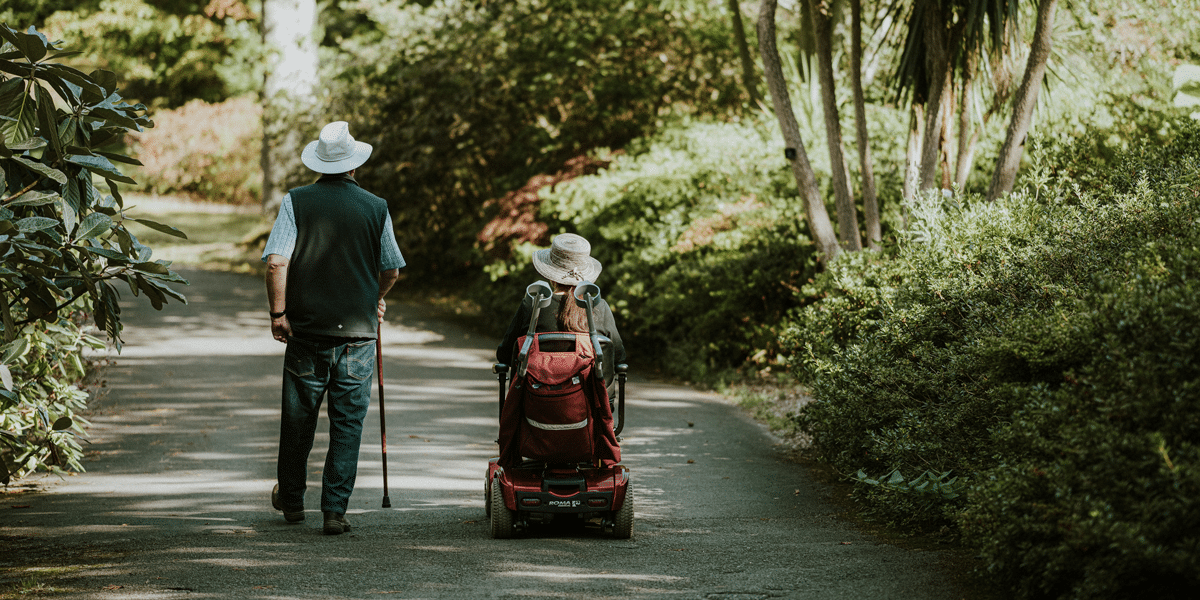
Duties of care: How to find balance in the care you give
Opinion + AnalysisHealth + WellbeingRelationships
BY Tim Dean 13 OCT 2025
Caring for others can be a joy as well as a burden. Here’s how to balance your duty to care for others in your life with your own right to live a full life.
Sue’s* father, Jack*, isn’t like he used to be. Since his stroke, Jack has been forgetful, irritable and he gets even more frustrated when he gets confused, which happens often. He is increasingly reliant on Sue’s care these days. She prepares his meals, does his laundry and bathes him when he’s too tired to do it himself. Meanwhile, Sue’s children – both of whom have just started high school – have issues of their own that require her attention.
Sue has had to reduce her hours at work, right before she was slated for a promotion to a senior role. The reduction in income has compounded the significant cut to her free time; she now spends most days looking after Jack, even though he seems thoroughly ungrateful for her care, as well as keeping her kids on track.
There are times when Sue thinks about moving Jack into a nursing home, even though she knows he’d resist. But she longs to return to work, which was a tremendous source of meaning for her, and she hasn’t seen her friends in months. Such thoughts fill her with guilt, and she quickly puts them aside. But she’s not sure how much longer she can go on like this. It’s certainly far from the life she envisaged for herself at this age.
While the names have been changed*, this scenario is based on a true story. Actually, many true stories. One of the most popular questions posed by callers to our Ethi-call service is how to balance our responsibility to care for others with our own rights to live our life. And it’s one of the most complex questions to answer. However, there are some key considerations that can help people facing this dilemma to decide on an ethical way forward, one that respects both the duties that they have to others as well as their own right to live a good life.
Finding the right balance
Caring for others is a fundamental part of the human experience. We naturally feel empathy and concern for people close to us, especially for loved ones and those who are vulnerable or unable to fully care for themselves. But we also have rights of our own that need to be taken into consideration.
While some philosophers argue that every human’s moral worth is equal, and that we ought to weigh everyone’s needs equally, others have argued that we have special relationships with some people – such as parents with their children, or spouses with each other – and those relationships imply special obligations to those individuals.
This ‘ethic of care’ says that we ought to prioritise the interests of people we have a special relationship with over the interests of others. It also says we have a special duty to care for those people, especially when they are vulnerable or cannot care for themselves.
We can see this sense of duty in the words of Kim Paxton, who was caring for her husband, Graham, after he was diagnosed with a serious medical condition, while waiting on governmental support. “You just do it,” she told The Guardian Australia. “I don’t know. You get tired, but they’re your family, your loved ones. It breaks my heart … It’s a bit like being a mum, isn’t it, with a newborn baby. You start living with less sleep and you work harder and you just do what you do for the love of your kids.”
Some philosophers also emphasise the role of rights and duties when it comes to thinking about the care we give. Rights are a kind of entitlement that each person has in order to be treated a particular way. For example, a right to dignity means we are entitled to be treated in ways that don’t diminish our dignity. If someone has a right, others have a duty to respect that right.
We can also have duties because of the social role or relationship we have. For example, a doctor has a duty to protect their patient’s interests by virtue of their professional role, and a parent has a duty to support their children until they are old enough to support themselves. Similarly, some people have a duty to care for a family member if they are unable to care for themselves.
However, rights and duties often come into conflict. A caregiver might have a duty to care for both children and elderly parents, and it might be impossible for them to satisfy both of those obligations to everyone’s satisfaction. In that case, it’s reasonable to appeal to the adage “ought implies can” – meaning if it’s impossible to do something, then you’re free from blame if you’re unable to do it. That might mean balancing your care among multiple people and managing expectations of what you can reasonably achieve.
What about me?
But duties don’t necessarily override all other concerns. We also have a right to pursue our own interests and our vision of a good life, and this right can be balanced with the rights of others to be cared for by us. Each of us has a right to agency, meaning our ability to act on our interests and desires. One reason we might care for others is to help remove the barriers that prevent them from exercising their agency.
But it’s important for us to also have agency, and that might mean not expending all of our time and energy on care.
It’s also important that those receiving care don’t morally impose on their caregivers by expecting an unreasonable degree of sacrifice on their behalf. If there are alternatives that can reduce the burden of care they place on family members, such as external help or respite care, then it could be important to explore those options, even if it isn’t their first preference.
There is also a pragmatic argument for placing boundaries on the care you give: if you want to ensure you are delivering the best care possible, you need to have the energy to actually deliver that care. If you become burnt out, you’re not able to satisfy your obligations to care for others.
To ensure you don’t run flat, you might need to devote some resources to self-care. That might mean taking a break from time to time, perhaps taking a relaxing holiday. Even if that feels indulgent, there’s no guilt in taking the time to recharge the batteries so you can return to our caring duties reinvigorated.
It can be difficult in practice to balance conflicts of interest or duties. However, there can be good ethical reasons to place some boundaries and set expectations on the care you give to others.
Tough decisions are a part of life, but you don’t have to make them alone. Ethi-call, a free independent helpline from The Ethics Centre, can help you find a path forward. Book now.

BY Tim Dean
Dr Tim Dean is a public philosopher, speaker and writer. He is Philosopher in Residence and Manos Chair in Ethics at The Ethics Centre.
Ethics in your inbox.
Get the latest inspiration, intelligence, events & more.
By signing up you agree to our privacy policy
You might be interested in…
Opinion + Analysis
Politics + Human Rights, Relationships, Society + Culture
Film Review: If Beale Street Could Talk
Opinion + Analysis
Health + Wellbeing
Ethics from the couch: 5 shows to binge on
Big thinker
Relationships, Society + Culture
Big Thinker: Simone de Beauvoir
Big thinker
Relationships, Society + Culture
Big Thinker: Socrates
There is more than one kind of safe space
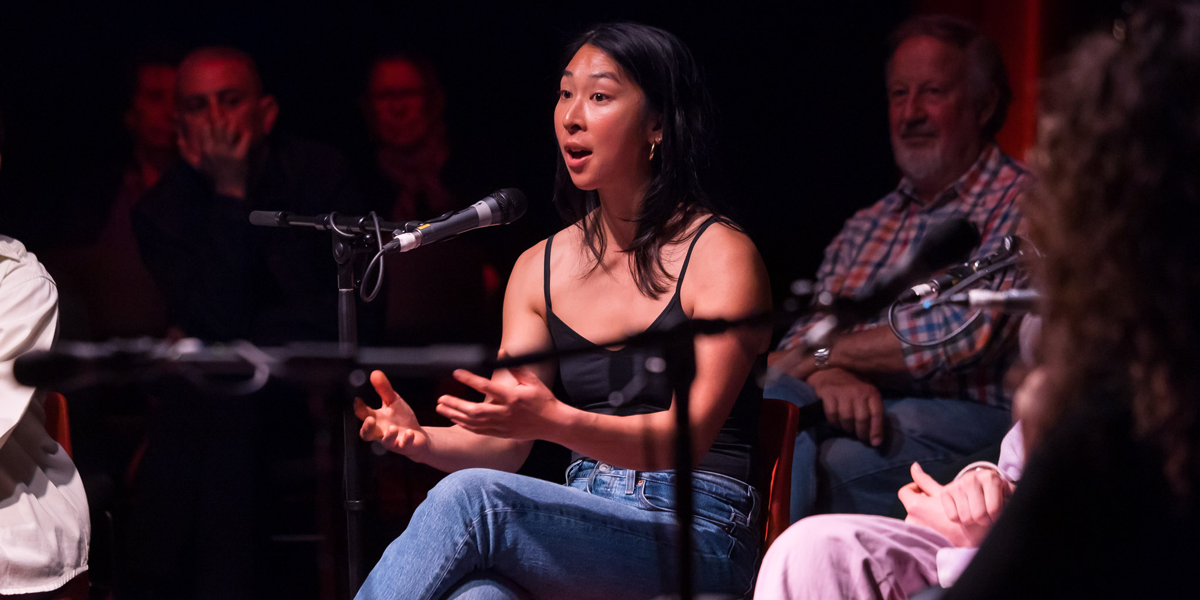
There is more than one kind of safe space
Opinion + AnalysisSociety + CultureRelationships
BY Tim Dean 21 JUL 2025
We’ve heard a lot about safe spaces recently. But there are two kinds of safe space, and one of them has been neglected for too long.
Like many universities today, new students at Western Sydney University are invited to use a range of campus facilities, such as communal kitchens, prayer rooms, parents’ rooms as well as Women’s Rooms and Queer Rooms. But there’s something that sets the latter two apart from the other facilities.
WSU describes the Women’s Room as “a dedicated space for woman-identifying and non-binary students, staff and visitors”, saying they are provided in an effort to “provide a safe space for women on campus”. The Queer Room is described as “a safe place where all people who identify as lesbian, gay, bisexual, trans, queer, or otherwise sex and/or gender diverse can relax in an accepting and inclusive environment.” The operative term in both descriptions is “safe”.
We have heard a lot about such “safe spaces” over the past several years. Yet as the number and type of safe spaces has grown, so too has the concept of safety expanded, particularly within United States universities. Many students now expect the entire campus to effectively operate as a safe space, one where they can opt out of lectures that include subjects that could trigger past traumas, raise issues they believe are harmful or involve views they find morally objectionable. The notion of safety has also been invoked to cancel lectures on university campuses by reputable academics because some students on campus claim the talk would make them feel unsafe.
In response, safe spaces have been criticised for shutting down open discourse about difficult or conflicted topics, particularly because such discourse has been seen as an essential part of higher education. Lawyer Greg Lukianoff and psychologist Jonathan Haidt have also argued that safe spaces coddle students by shielding them from the inevitable controversies and offences that they will face beyond university, contributing to greater levels of depression and anxiety.
However, all of the above refers to just a single kind of safe space: one where people are safe from possible threats to their wellbeing.
In a complex and diverse world, where people of different ethnicities, religions, political persuasions and beliefs are bound to mingle, there are good reasons to have dedicated places to where individuals can retreat, spaces where they know they will be safe from prejudice, intolerance, racism, sexism, discrimination or trauma.
But there is another kind of safe space that is equally important: one where people are safe to express themselves authentically and engage in good faith with others around difficult, controversial and even offensive topics.
While safe from spaces might be necessary to shield the vulnerable from harm in the short term, safe to spaces are necessary to help society engage with, and reduce, those harms in the long term.
And while much of the focus in recent years has been on creating safe from spaces, there are those who have been working hard to create more safe to spaces.
A safe to space
More than thirty years ago, philosopher and Executive Director of The Ethics Centre, Dr Simon Longstaff AO, set up a Circle of Chairs in Sydney’s Martin Place and invited passers-by to sit down and have a conversation. In doing so, he effectively created a powerful safe to space. It was so successful that this model of conversation remains at the heart of how The Ethics Centre operates to this day, through its range of public facing events including Festival of Dangerous Ideas, The Ethics Of…, and In Conversation.
But the success of The Ethics Centre’s events – similar to any other safe to space – is that they don’t just operate according to the norms of everyday conversation, let alone the standards of online comment sections or social media feeds. In these environments, the norms of conversation make it difficult to genuinely engage with challenging or controversial ideas.
In conversations with friends and family, we often feel great pressure to conform with the views of others, or avoid topics that are taboo or that might invite rebukes from others. In many social contexts, disagreement is seen as being impolite or the priority is to reinforce common beliefs rather than challenge them.
In the online space, conversation is more free, but it lacks the cues that allow us to humanise those we’re speaking to, leading to greater outrage and acrimony. The threat of being attacked online causes many of us to self-censor and not share controversial views or ask challenging questions.
For a safe to space to work, it needs a different set of norms that enable people to speak, and listen, in good faith.
These norms require us to withhold our judgement on the person speaking while allowing us to judge and criticise the content of what they’re saying. They encourage us to receive criticism of our beliefs while not regarding them as an attack on ourselves. They prompt us to engage in good faith and refrain from employing the usual rhetorical tricks that we often use to “win” arguments. These norms also demand that we be meta-rational by acknowledging the limits of our own knowledge and rationality, and require us to be open to new perspectives.
Complementary spaces
It takes work to create safe to spaces but the rewards can be tremendous. These spaces offer blessed relief for people who all-too-often hold their tongue and refrain from expressing their authentic beliefs for fear of offence or the social repercussions of saying the “wrong thing”. They also serve to reveal the true diversity of views that exist among our peers, diversity that is often suppressed by the norms of social discourse. But, perhaps most importantly, they help us to confront difficult and important issues together.
Crucially, safe to spaces don’t conflict with safe from spaces; they complement them. If we only had safe from spaces, then many difficult topics would go unexamined, many sources of harm and conflict would go unchallenged, new ideas would be suppressed and intellectual, social and ethical progress would suffer.
Conversely, if we only had safe to spaces, then we wouldn’t have the refuges that many people need from the perils of the modern world; we shouldn’t expect people to have to confront difficulty, controversy or trauma in every moment of their lives.
It is only when safe from and safe to are combined that we can both protect the vulnerable from harm without sacrificing our ability to understand and tackle the causes of harm.
This article has been updated from its original publication in August 2022.

Ethics in your inbox.
Get the latest inspiration, intelligence, events & more.
By signing up you agree to our privacy policy
You might be interested in…
Opinion + Analysis
Society + Culture
Gender quotas for festival line-ups: equality or tokenism?
Opinion + Analysis
Relationships
Would you kill one to save five? How ethical dilemmas strengthen our moral muscle
Opinion + Analysis
Business + Leadership, Relationships
Workplace romances, dead or just hidden from view?
Explainer
Relationships
Ethics Explainer: Respect
BY Tim Dean
Dr Tim Dean is a public philosopher, speaker and writer. He is Philosopher in Residence and Manos Chair in Ethics at The Ethics Centre.
Ask an ethicist: How should I divvy up my estate in my will?

Ask an ethicist: How should I divvy up my estate in my will?
Opinion + AnalysisRelationships
BY Tim Dean 12 JUN 2025
I’m in the process of writing my will, but I’m unsure about how I should split my estate among my children. Should it be divided equally? Or should I give more to one of my children, who needs it more?
It’s hard enough avoiding thinking about our own mortality, but then we also have to contemplate the ructions that could erupt after we depart the mortal coil. Is that fair? Probably not. But at least you can attempt to be fair in how you dole out your mortal leftovers.
The good news is that philosophers have spent centuries coming up with ways to carve up a bundle of stuff – whether that’s a pie, a national budget or a deceased estate – and distribute it fairly. The bad news is they haven’t settled on just one right way to do it. Still, if you care about fairness, then there are a few approaches you can take.
The simplest is to just split things perfectly evenly. Say you have $100,000 left in the bank; you have four children: you divide it four ways, so they get $25,000 each. Simple. That’s called “strict egalitarianism,” which says that stuff should be distributed so that everyone ends up with exactly the same amount.
But my youngest child has had a string of bad luck that has left them struggling to get by. Meanwhile, the three older ones are cruising. Does that mean I should leave more to the needy one and less to the others?
And therein lies a problem with strict egalitarianism: we don’t all start off in the same position. So sharing stuff around equally might just exacerbate existing inequalities. Like, it would be weird to cut a pie four ways and give an equal slice to each diner if three of them were stuffed full and one was starving to death.
That’s why the “welfare approach” urges us to think carefully about how each individual is going right now, and make sure that we distribute our stuff so that it generates the maximum overall welfare for everyone. So, if three of your children are doing well – i.e. their welfare is currently high – and one is lagging behind, then it would be fair to give the one who’s struggling a bigger slice of the pie.
That doesn’t necessarily mean they should get all the pie. Things like money and pleasure often have diminishing returns. So giving everything you have to the struggling child might not elevate their welfare much more than just giving them half. And it might turn out that giving a small amount to the three children who are better off will still make a significant difference to their welfare. So get your calculator out, start plugging in welfare values, and run the numbers to see who gets what.
Look, I hear you, but my older kids say that my youngest is an idiot, and keeps making terrible decisions, like investing all their money in crypto. Would it be unfair to the others if I just propped them up?
Speaking of divvying up pies, this brings us to the idea of “dessert”. Fairness is not just about making sure that everyone ends up on even footing. It can also mean rewarding those who work hard and act responsibly, and not coddling those who are lazy and irresponsible. If you keep feeding that hungry person pie, then they might not bother making themselves dinner and rely on your charity to keep them fed.
So, the dessert-based approach says you should think about how much of your fortune each of your children deserves. You might look at how hard they work, or how much they contribute to looking after their families, or how much time and energy they have spent caring for you.
Well, if that’s the case, then none of them deserve it, because they all forgot to call me on my last birthday. That said, I do like the idea of making sure my inheritance goes where it can do the most good. I’m just not convinced that it can do so in the pockets of my ungrateful children.
Then perhaps you need to broaden your horizons beyond your family. Even a small donation to the right charity can transform lives, producing far better outcomes in terms of welfare than giving it you children, especially if they are already living comfortably.
In fact, it’s well known that inheritances are a major contributor to perpetuating intergenerational inequality. Rich people give their stuff to rich kids, who can use that to generate even more riches throughout their lifetime. I mean, have you seen the property market these days? It’s almost impossible to get in without an inheritance propping you up. So what do poorer people do?
That’s why economists say one of the best ways to flatten the wealth in a society is to tax inheritances, especially big ones. Although that policy is strangely unpopular with many voters, especially those who own multiple properties. Go figure.
So, if you decide to break the cycle and do the most good with your inheritance, there are plenty of charities that will more than happily distribute it to those with the greatest need. Just don’t expect your kids to be thrilled with your decision.

BY Tim Dean
Dr Tim Dean is a public philosopher, speaker and writer. He is Philosopher in Residence and Manos Chair in Ethics at The Ethics Centre.
Ethics in your inbox.
Get the latest inspiration, intelligence, events & more.
By signing up you agree to our privacy policy
You might be interested in…
Opinion + Analysis
Relationships
Do we have to choose between being a good parent and good at our job?
Opinion + Analysis
Relationships
TEC announced as 2018 finalist in Optus My Business Awards
Opinion + Analysis
Health + Wellbeing, Relationships
Anthem outrage reveals Australia’s spiritual shortcomings
Opinion + Analysis
Health + Wellbeing, Relationships
There is something very revealing about #ToiletPaperGate
Do we exaggerate the difference age makes?
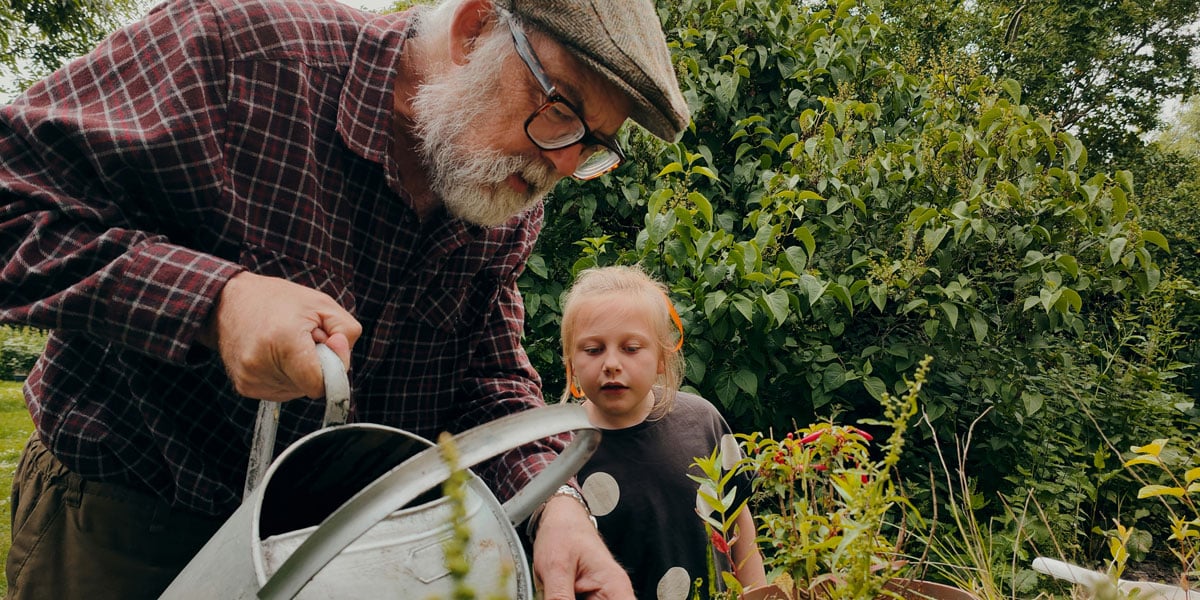
Do we exaggerate the difference age makes?
Opinion + AnalysisSociety + CultureRelationships
BY Emma Wilkins 19 MAY 2025
A few weekends ago, I made a parenting mistake. I didn’t realise in the moment. The penny didn’t drop, until a good friend made a comment afterwards.
My family was hosting a brunch with several other families. After a few hours in the noisy, sticky, fray, one of our kids asked to retreat. Sensing my hesitation, he pointed out that none of the other guests were of his age.
Partly in acknowledgement, and partly because the retreat he had in mind involved attacking the thistles taking over our front lawn, I let him slip away.
Shortly afterwards, sitting with a group of parents, watching syrup-crazed children run riot out the back, I explained his absence. One parent stopped me at the words “no one my age”. He was wondering, aloud, why age was relevant – let alone a reason to retreat.
The friend who stopped me was one who’d moved to Australia as an adult. He saw the culture he was living in, and the one he’d left, with the benefit of fresh, discerning eyes. Before he finished making it, I saw his point.
Why not expect our kids to socialise with others, regardless of age? Why not encourage them to enjoy the company of those younger than them, and the company of those older than them?
The friend in question told us he’d noticed this propensity to segregate by age before, and resolved not to succumb. He said he makes a point of crossing age divides, of greeting and conversing without discriminating, at social gatherings. Children, in particular, often seem puzzled by his attention. Sometimes they don’t return a greeting, or answer a question, they just stare. The stare might be translated to mean, “Why is this old dude talking to me?” or, “Why would I talk to this old dude?”. Sometimes they mutter something before running off, sometimes they just run off.
As the friend spoke, I recalled a social event where the child who’d just retreated had ended up deep in conversation with a grandparent he’d never met. I wished this image had come to mind earlier, prompted by the words “no one my age”. I knew both he and that grandparent had enjoyed their conversation, maybe as much as the cake, maybe more. It was proof age needn’t be a barrier.
Age needn’t be a barrier, but my friend’s description of children giving him quizzical looks when he acknowledges them suggests us adults are making it one. It suggests so few adults – not counting relatives – take the time to talk to them, that when one does it’s an anomaly.
I consider how much attention I pay to children who aren’t my own at social gatherings.
Sometimes, my attention is on fellow grown-ups and I don’t think to make an effort. At other times, I think to – then I overthink. I see a child and a compliment comes to mind but it’s based on their appearance, or a stereotype, so I censor myself. Or a question comes to mind, but the child in question is a teen and I imagine it will either induce a deep inward groan – “Not another adult asking what I’ll do post-school, how should I know?” – or defensiveness, or self-consciousness, or insecurity…
What lame excuses! If I want my kids to enjoy and initiate interactions and relationships with people of all ages, to throw age-related bias out the window, I should too – even if it requires a little bit of extra effort, creativity, or risk. Who cares if I induce an eye-roll or a groan? What matters is that I don’t just take a genuine interest, and show genuine interest, in adult’s lives, but in the lives of children, too.
I’m sure political philosopher David Runciman also attracts plenty of eye-rolls, as he did at last year’s Festival of Dangerous Ideas, when arguing that children as young as six should be allowed to vote. After acknowledging that many people find the idea laughable, he turns the question around. “Why shouldn’t they vote?” he asks. “They’re people; they’re citizens; they have interests; they have preferences; there are things that they care about.” Children might make irrational, ill-informed decisions, they might follow their tribe unthinkingly, they might dismiss facts that challenge pre-existing beliefs, but, he points out, adults might too.
“You can’t generalise about children any more than you can generalise about adults,” Runciman says, noting that being well-informed isn’t a prerequisite for voting. Being capable is, and six-year-olds, he argues, are.
Runciman speaks from experience – he once spent a term in an English primary school talking to kids as young as six about politics. Treating them “like they were full citizens”, he arranged for them to participate in the kind of focus groups political parties run for adults. The professional facilitator who ran them said one was among the most inspiring focus group sessions she’d ever been part of.
I’m not convinced children as young as six should be allowed to vote; I am convinced that when we assume we can’t learn from, or socialise with, or befriend them – when we widen the generational divide instead of closing it – we do ourselves and our society a disservice.
I was grateful, and I’m grateful still, that the friend who drew my attention to my parenting mistake didn’t let concern about how it might come across stop him from speaking his mind. Frank honesty is a quality some associate with children. Either way, it’s one that I admire.
I admired his persistence too – despite all those puzzled looks from kids, he’s persevered.
That persistence has paid off. It’s taken months, it’s taken years, but now some children run to him, or look for him at social gatherings. Now some consider him a friend.
For more, tune into David Runciman’s FODI talk, Votes for 6 year olds:

BY Emma Wilkins
Emma Wilkins is a journalist and freelance writer with a particular interest in exploring meaning and value through the lenses of literature and life. You can find her at: https://emmahwilkins.com/
Ethics in your inbox.
Get the latest inspiration, intelligence, events & more.
By signing up you agree to our privacy policy
You might be interested in…
Opinion + Analysis
Relationships
Can we celebrate Anzac Day without glorifying war?
Opinion + Analysis
Relationships
How to give your new year’s resolutions more meaning
Opinion + Analysis
Relationships
Ask an ethicist: How much should politics influence my dating decisions?
Opinion + Analysis
Business + Leadership, Relationships










